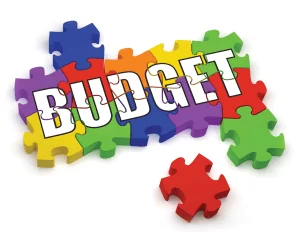The PTI Government announced its first ever Budget for the Fiscal Year 2019-20, amidst severe protest from the opposition in the National Assembly. Levying additional taxes of Rs1.12 trillion and setting an ambitious tax collection target of around Rs 5,555 Billion, the Rs 7.02 trillion Budget (up by 30% from that of the previous year) prepared by the Government brings a lot of things worth discussing.
While the additional taxes levied on a variety of products contribute to rising prices of a lot of consumables, some austerity-based measures have also been announced as part of the Federal Budget for FY19-20.
Salient Features & Breakdown of Budget 19-20

- Tax and Non-Tax Revenue Targets set at Rs 5,555bn and Rs 894.5bn respectively
- Rs 1.15tr set aside for Defense, Rs 950bn for Federal Development Projects
- Higher Education Budget fixed at Rs 43bn
- Budget for Agriculture and Power set as Rs 280bn and Rs 80bn respectively
- Rs 152bn set aside for development of newly merged tribal districts and Rs 45.5bn for Karachi
- Civil Government Expenditure to be Rs 431bn
- Rs271bn set aside for subsidies
- Inflation Targets set from 5-7%
- Minimum Wages Increased to Rs 17500
- GST to remain at 17%
- 10% Increase in Salaries for Government Employees from Grade 1 to 16, 5% from Grade 17 to 20 and none from grade 21 and onwards
- 10% of Voluntary reduction in Federal Ministers’ salaries
- Minimum taxable income for salaries class to be Rs 0.4mn per annum.
- Corporate Tax fixed at 29% for the next two years.
Revised Taxes and Prices for Fiscal Year 19-20
Here’s are the most significant changes in taxes and prices for the upcoming fiscal year.
- Federal Excise Duty (FED) on soft drinks goes up from 11.5% to 14%
- Sugary Drinks subjected to 5% FED of their retail price.
- FED on Edible oil and Branded Cooking Oil increased to 17%
- FED on cars up to 1000cc set at 2.5%, up to 2000cc at 5% and 7.5% above that
- 17% FED imposed on Steel Sector
- Sales tax on sugar and leather products restored to 17%
- Mineral Water subjected to 14% FED
- 10% Tax imposed on powdered milk, flavored milk and cream
- 17% GST imposed on Semi0processed and Cooked Chicken, fish and mutton
- FED on Cigarettes up from Rs 4500 to Rs 5200 per 1000 sticks
- 3% VAT on Import of Mobile phones abolished
- 17% GST restored on Marble Industry
- GST on Food supplied by restaurants, bakeries and caterers slashed to 7.5%
Conclusion
Calling the budget successful or unsuccessful would be too vague. The Government surely has shown ambition while setting tax and revenue collection target. Even though the potential tax collection capacity in Pakistan is way more than what the current budget targets, the Rs 5,555bn target for the upcoming fiscal year cannot be achieved unless significant measures are taken to broaden the tax net.
Also Check Out: HEC Internships for Fresh Graduates
Considering the sluggish Economic activity and sharp decline in the growth for a few industries over the past year, the Government does not target an ambitious GDP growth and intends to revive and aid the survival of collapsing industries.
In an attempt to ‘gain the lost’ trust of investors and minimize the uncertainty surrounding the stock market, the Imran Khan led PTI Government has promised a 20bn package for the stock market.
With that being said, it’s the middle class that takes the hit again with prices of a lot of basic commodities expected to rise. Inflation went rather stray over the past year with the devaluation of Pakistan Rupee and a steep rise in the prices of Petrol and Diesel.
